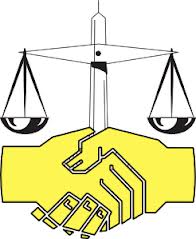Playing with Ralph Lauren: A Fair Settlement?
 The FCPA Paparazzi has been at it again – it is fascinating to watch the reaction of practitioners and commentators in the FCPA arena. You can usually find someone who will agree with any position you want to take. Paparazzi members are usually all over the map, trying to differentiate their position, their take on the issue, so as to carve out a unique and valuable role in the blogosphere.
The FCPA Paparazzi has been at it again – it is fascinating to watch the reaction of practitioners and commentators in the FCPA arena. You can usually find someone who will agree with any position you want to take. Paparazzi members are usually all over the map, trying to differentiate their position, their take on the issue, so as to carve out a unique and valuable role in the blogosphere.
The Ralph Lauren settlement is the latest grist for the mill. For many companies it represents a worst case scenario – a voluntary disclosure for FCPA violations in a single country, Argentina, turns into a global investigation and a civil penalty, and two non-prosecution agreements, one with the SEC and one with the DOJ.
Some have questioned whether the government played fair with Ralph Lauren. It is hard to second guess Ralph Lauren’s judgment, especially since they were so ably represented by one of the premier practitioners, Tom Hanusik (who I personally know and respect).
Setting aside the FCPA Paparazzi arguments floating in the blogosphere, there are two important take-aways from the Ralph Lauren settlement.
First, the decision by a company to cross into the Justice Department’s hallways and make a voluntary disclosure is a very difficult calculation which requires a balancing of costs and benefits. The benefit is a reduced penalty. The cost, however, is determined by multiplying the risk of being caught if the company does not disclose the matter, along with the higher penalty when the matter is not disclosed.
As I have argued for a long time there needs to be more certainty to this calculation. The Antitrust Division adopted guidelines for penalty reductions to companies which disclose and cooperate their conduct in cartels. Prosecutors in the 94 judicial districts in the United States hand out plea agreements all the time with defined benefits, and they usually have guidelines and committees to ensure that disclosure and cooperation benefits are awarded to companies or individuals in a consistent manner.
For some reason, when it comes to FCPA violations, the government is unwilling to define in advance how a company will benefit from voluntary disclosure. To the extent this leads to uneven settlements, or inconsistent standards, the administration of FCPA justice is undermined.
Second, while the SEC has adopted cooperation guidelines which can result in a non-prosecution agreement, the SEC’s cooperation program has very little utility unless the Justice Department agrees to the same result. For example, if a company wants to cooperate with the SEC, the potential carrot of a non-prosecution agreement is of little value unless and until the Justice Department agrees not to prosecute the company or the individual.
In a sense, the SEC wants to act like a prosecutor but does not have the magic wand needed to exercise powers normally handled by prosecutors. I have always questioned the value of the SEC’s cooperation program because it is always limited by the Justice Department’s role and actions in a particular case.
 When all is said and done, the Ralph Lauren case breaks no new ground, nor does it offer any new enforcement or cooperation incentives. It was a case which was handled consistent with the DOJ/SEC FCPA Guidance, and only underscored the need for defining terms of cooperation and specific benefits for companies and individuals to bring some clarity to an otherwise opaque settlement process.
When all is said and done, the Ralph Lauren case breaks no new ground, nor does it offer any new enforcement or cooperation incentives. It was a case which was handled consistent with the DOJ/SEC FCPA Guidance, and only underscored the need for defining terms of cooperation and specific benefits for companies and individuals to bring some clarity to an otherwise opaque settlement process.















